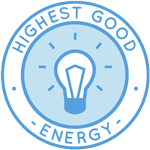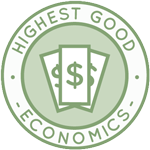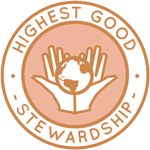Renewable Eco-collaboratives – One Community Weekly Progress Update #377
One Community is open sourcing renewable eco-collaboratives. We are doing this to build the first of a global network of teacher/demonstration hubs designed to help people replicate sustainable environments integrating ecological and “Highest Good” approaches to food, energy, housing, education, for-profit and non-profit economic design, social architecture, fulfilled living, global stewardship practices, and more. We see doing this so they are easy enough, affordable enough, and attractive enough to spread on their own as a path to global sustainability within our lifetime.
- Here’s our project overview
- Here’s our world-change methodology
- Here’s how this becomes self-replicating
- Here’s how we are open source and free-sharing all the do-it-yourself designs
OUR MAIN OPEN SOURCE HUBS
Click on each icon to be taken to the corresponding Highest Good hub page.
One Community’s physical location will forward this movement as the first of many self-replicating teacher/demonstration communities, villages, and cities to be built around the world. This is the June 14th, 2020 edition (#377) of our weekly progress update detailing our team’s development and accomplishments:
Renewable Eco-collaboratives
One Community Progress Update #377
DONATE | COLLABORATE | HELP WITH LARGE-SCALE FUNDING
CLICK HERE IF YOU’D LIKE TO RECEIVE AN EMAIL EACH WEEK WHEN WE RELEASE A NEW UPDATE
YOU CAN ALSO JOIN US THROUGH SOCIAL MEDIA
ONE COMMUNITY WEEKLY UPDATE DETAILS
HIGHEST GOOD HOUSING PROGRESS
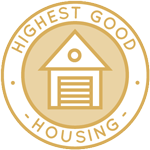 One Community is helping establish renewable eco-collaboratives through Highest Good housing that is artistic and beautiful, more affordable, more space efficient, lasts longer, DIY buildable, and constructed with healthy and sustainable materials:
One Community is helping establish renewable eco-collaboratives through Highest Good housing that is artistic and beautiful, more affordable, more space efficient, lasts longer, DIY buildable, and constructed with healthy and sustainable materials:
- Learn about our renewable eco-collaboratives: Our Upcoming Crowdfunding Campaign
- Learn about the different village models: 7 Sustainable Village Models
- Visit the open source portals for the first two: Earthbag Village OS Hub | Straw Bale Village OS Hub
This week the core team continued work on the Sustainable Site Selection, Planning, and Preparation content for our renewable eco-collaboratives. This week’s focus was adding in all the needed video notations for the videos we’ll be adding during construction, final formatting and organization, final content additions, and then submitting it for final review and feedback by another member of our team. You can see some of this work below and this brings us to 95% complete with the behind-the-scenes editing of this tutorial.

Continued Work on the Sustainable Site Selection, Planning, and Preparation Content – Click for Page
Ashwini Ramesh (Civil Engineer and Project Manager) returned to the team after almost 3 years off and continued with her 6th week helping with the Earthbag Village cost analysis and open source tutorials for our renewable eco-collaboratives. This week Ashwini completed the calculation of quantities for the domes and continued to integrate all the Items in Master Table, cross checking everything on the material list. You can see some of this work-in-progress below.

Continued Helping with the Earthbag Village Cost Analysis and Open Source Tutorials ” Click for Page
Angela Mao (Sustainability Researcher) also completed her 6th week as a member of the team and researching Clothing Recycling/Repurposing Options. This week Angela officially wrapped up her clothing recycling tutorial by putting all the resources into Dropbox. After working on it and researching the whole week, she is almost also now complete with her additions to the plastic recycling business tutorial and her paper recycling business tutorial. You can see some of this behind-the-scenes work for our renewable eco-collaboratives below.
DUPLICABLE CITY CENTER PROGRESS
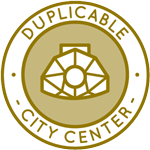 One Community is helping establish renewable eco-collaboratives through a Duplicable and Sustainable City Center that is LEED Platinum certified/Sustainable, can feed 200 people at a time, provide laundry for over 300 people, is beautiful, spacious, and saves resources, money, and space:
One Community is helping establish renewable eco-collaboratives through a Duplicable and Sustainable City Center that is LEED Platinum certified/Sustainable, can feed 200 people at a time, provide laundry for over 300 people, is beautiful, spacious, and saves resources, money, and space:
- Learn about this building and it’s function for our renewable eco-collaboratives: Duplicable City Center Open Source Hub
This week the core team continued updating the Duplicable City Center 3D model to match the updated floor plans and interior design details, for our renewable eco-collaboratives. This week’s focus was the cupola and central area. We added missing dirt catchers and water fountains, reversed the opening direction for the laundry door from the court, placed lounge chairs and tables in the court area, replaced sliding door to folding door between Dining Dome and central area, placed washers and dryers in the laundry room.
We also reversed direction of the laundry room door to the Dining Dome, placed tables and chairs on the 2nd floor next to the Dining Dome and Social Dome, placed tables with lounge chairs outside the cupola activity room, and updated all the furniture inside the cupola activity room. You can see some of these updates below.
Radhieka Nagpal (Volunteer Researcher) also completed her 13th week researching the Most Sustainable Building Materials: Carpet, Flooring, Wood, Etc. This week, Radhieka modified the ranking and hence the content based on a new ranking methodology focused more on products. The score was also modified in the benchmarking sheet, adding and reducing points based on sustainability of product offerings.
Finally two rankings were created – one with focus on products (the main one) and the other with the uniform benchmarking (given in the FAQs). She also modified the FAQ as well to explain this modified process of ranking. Furthermore, she has added a glossary for all certifications mentioned in the doc along with some key terms used as part of FAQ. You can see some of this work-in-progress for our renewable eco-collaboratives below, and we’d say this brings this tutorial to 83% complete.
And Ziqian Zheng (Architectural Designer and Drafter) began working on the Duplicable City Center 3D walkthrough in our renewable eco-collaboratives, and completed his 30th week as a volunteer designer with our team. This week’s focus was combining the 3 domes, adding plants and other outdoor details, updating textures, and running the initial test renders shown below.
Ian Coletti (Environmental Studies Major Researcher) also joined the team and started research for the Most Sustainable Windows and Doors open source guide to establish renewable eco-collaboratives. He selected 9 companies and took notes on how well they met sustainability criteria. Ian also started looking into the sustainable options in the inventories of each company. You can see some of this work-in-progress below.
HIGHEST GOOD FOOD PROGRESS
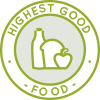 One Community is helping establish renewable eco-collaboratives through Highest Good food that is more diverse, more nutritious, locally grown and sustainable, and part of our open source botanical garden model to support and share bio-diversity:
One Community is helping establish renewable eco-collaboratives through Highest Good food that is more diverse, more nutritious, locally grown and sustainable, and part of our open source botanical garden model to support and share bio-diversity:
- Learn about the structures on renewable eco-collaboratives: Hoop House Hub | Aquapini & Walipini Open Source Hub
- See what we’ll be growing: Gardens & Hoop Houses | Large-scale Structures | Food Forest | TA
This week the core team continued developing the open source permaculture design content to establish renewable eco-collaboratives. This week we completed the first draft of the Observation and Research by Component subsections within Step 2 of the Permaculture Design Case Study Section, which included mind maps, phased roll out details, conscious application of and thought to permaculture ethics and principles now and always, and a list of observational focuses once on the property. The observational focuses part was the newest and most time consuming and is shown below.
Mohammad Almuzaial (Civil and Construction Engineer) continued with his 29th week helping with the Aquapini/Walipini engineering details for our renewable eco-collaboratives. This week he continued preparing the 2D construction drawings by further remodeling the structures’ side walls, modifying the topography, side walls, and site concrete floor according to the new design, updated the site drawing annotations, and started the design criteria report. You can see some of this work work-in-progress below and we’d say we’re now about 95% complete with the structural details.
HIGHEST GOOD EDUCATION PROGRESS
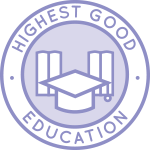 One Community is helping establish renewable eco-collaboratives through Highest Good education that is for all ages, applicable in any environment, adaptable to individual needs, far exceeds traditional education standards, and more fun for both the teachers and the students. This component of One Community is about 95% complete with only the Open Source School Licensing and Ultimate Classroom construction and assembly details remaining to be finished. With over 8 years of work invested in the process, the sections below are all complete until we move onto the property and continue the development and open sourcing process with teachers and students – a development process that is built directly into the structure of the education program and everything else we’re creating too:
One Community is helping establish renewable eco-collaboratives through Highest Good education that is for all ages, applicable in any environment, adaptable to individual needs, far exceeds traditional education standards, and more fun for both the teachers and the students. This component of One Community is about 95% complete with only the Open Source School Licensing and Ultimate Classroom construction and assembly details remaining to be finished. With over 8 years of work invested in the process, the sections below are all complete until we move onto the property and continue the development and open sourcing process with teachers and students – a development process that is built directly into the structure of the education program and everything else we’re creating too:
- Program Overview on Renewable Eco-collaboratives: Education Open Source Hub
- How the components work together: How to use the Education for Life Program
- Lesson Plans for Life – Lesson Plans How-to
- Foundations of Outstanding Leaders, Teachers, and Communicators
- Curriculum for Life
- Teaching Strategies for Life
- Learning Tools and Toys for Life
- Evaluation and Evolution
This week Dan Alleck (Designer and Illustrator) completed his 80th week helping with render additions and finishing work for the rooms in the Ultimate Classroom. This week he began work on view #2 of the central area showing this space being set up for a theater presentation. This week’s work included removing the items that won’t be present during a presentation like this and adding in the test curtain and lighting shown below.
Zebao Chen (Structural Designer) also completed her 8th week working on the Ultimate Classroom structural engineering details to establish renewable eco-collaboratives. This week Zebao updated the structural elements layout to match the roof shape. In order to remove the central columns in the opening space, she also changed the design to three bays of columns instead of two. To match the rafters layout, the roof shape was further adjusted.
Theses changes increased the storage space in the attic and now the ventilation ducts, which are located in the ceiling, can exhaust through the openings on two sides of the attic. Rafter design and analysis was then done again and showed the triangular shape of rafter with two columns supporting can resist the combined load applied on the roof (and the ceiling storage load if needed to attach to the roof). You can see some of this work below and we’d say this brings the engineering of this building to 25% complete.
HIGHEST GOOD SOCIETY PROGRESS
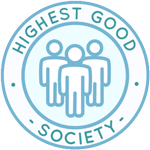 One Community is helping establish renewable eco-collaboratives through a Highest Good society approach to living that is founded on fulfilled living, the study of meeting human needs, Community, and making a difference in the world:
One Community is helping establish renewable eco-collaboratives through a Highest Good society approach to living that is founded on fulfilled living, the study of meeting human needs, Community, and making a difference in the world:
- Read the Highest Good society overview on our renewable eco-collaboratives: Highest Good Society
- Learn about the model for fulfilled living and sharing: A Day in the Life
- Learn about the 4 economic models: RBE | For-profit | Non-profit | Entrepreneurship
- Learn about our open source community collaboration and management software: The Highest Good Network
This week Tengxiao Wang (Software Engineer) completed his 19th week working on the Highest Good Network software. This week Tengxiao added pop-up alerts in order to remind users of time logging before they log out or leave the page. A bug in the TimeEntryForm was fixed. He also added a 2-day buffer for the token expiration to avoid failure (especially timer related operations) when the user is working. The token lifetime on the backend side is 10 days. But the frontend will force the user to re-login to acquire a new token. You can see some of this work-in-progress to establish renewable eco-collaboratives below.
Henry Nguyen (React Developer) also completed his 19th week with the team and working on the Highest Good Network software. This week Henry added an automatically refresh function to update the interface after we have a new task or delete a task. He also implemented a big change for the resources so that the parent resources are now updated by the children tasks, and all members of the children will display on their parents. You can see some of this work to establish renewable eco-collaboratives below.
Alvaro Hernández (Open Source Tech Consultant, Developer) completed his 12th week as a member of the Highest Good Network software team and web design team. This week Alvaro researched redux principles for react file structuring and finished the first draft of editing and preparing “the Open Source Sustainable Parking Lot guide” for web publication. You can see some screenshots of this behind-the-scenes work to establish renewable eco-collaboratives below.
Ross Edwards (Chief Imagination Officer, G3) completed his 8th week helping promote One Community. Ross is someone who found our project, loved what we are doing, and offered to just help contact people he (and we) thought might be interested in what we’re doing. This week he continued to promote our project and the One Community helping page to educators, engineers, and various supporters of The Venus Project. You can see this last week’s list of who he contacted and some screenshots of the overview to establish renewable eco-collaboratives below.
And Andon Ignatov (Senior Web Developer) completed his 6th week working on the Highest Good Network software. This week Andon started the week fixing some bugs and formatting the blue square notification emails and messages. Then he implemented a weekly summary auto-report email function that can be used to send out email to admins with the weekly summaries for a particular week for all active users.
He also added a cron job that runs the weekly summary auto-email once the week ends. Andon finished the week by doing some code review for the WBS #: 4.2.1 pull request. He also added a rule to fill in the blank field before submitting a new task. You can see screenshots of some of this work to establish renewable eco-collaboratives below.
TEKtalent Inc. (a custom programming solutions company) also continued with their 2nd week helping with the Highest Good Network software. This week Nithesh & the TEKtalent team completed the user management list page and related filter and search options. All users will be listed in this page and administrators can apply filters by Name, role, email and weekly committed hours. Also it is now possible to filter the list based on active or inactive users. Additionally, there is now a wildcard search option which can be used to search any value in the list. You can see some of this work to establish renewable eco-collaboratives below.
And Adam Capdeville (Software Engineer) joined the team and completed his 1st week working on the Highest Good Network software. This week Adam completed the on-boarding process, got the app running locally, and began reviewing the React code base. Adam discussed the design pattern of the React App with the team and brought up shifting the project into a Ducks design pattern. Further discussion is required with the team in order for a design pattern to be established after the initial phase. Phase 1 of the React App project will focus on functions and getting the application working.
Phase 2 will be refactoring the code base for future development, phase 2 still needs further discussion. Once Adam was done understanding the components code base, he continued to develop and test the user profile. Currently Adam is working uploading pictures for a profile picture. Images that are too large cause an error after confirming that the size is too large. You can see some of Adam’s behind-the-scenes work to establish renewable eco-collaboratives below.
AND WE PRODUCED THIS WEEKLY UPDATES BLOG – CLICK HERE TO SUBSCRIBE
FOLLOW ONE COMMUNITY’S PROGRESS (click icons for our pages)
INVESTOR PAGES
GET INVOLVED
DONATE | WAYS ANYONE CAN HELP | MEMBERSHIP
CLICK HERE FOR ALL PAST UPDATES
 One Community
One Community
